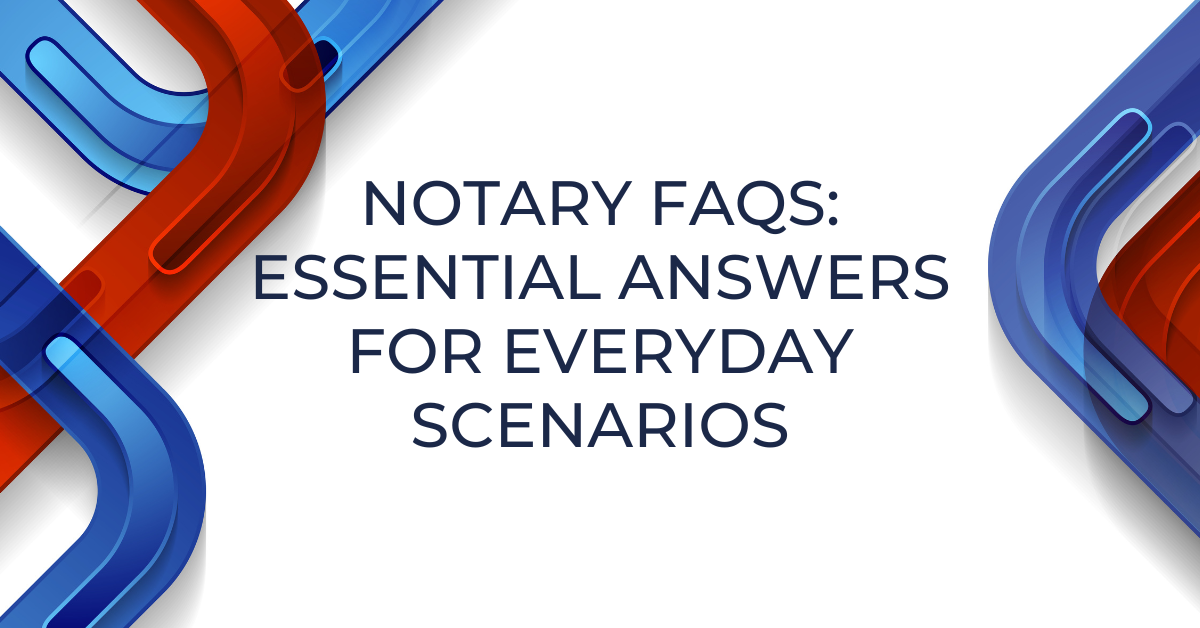Notary Public Underwriters Blog
Notary FAQs: Essential Answers for Everyday Scenarios
- Details
- Published: December 9, 2024

For notaries, each day brings unique situations and questions about their duties. To help address some common concerns, here’s a collection of frequently asked notary questions.
Can I notarize something if I didn’t see the person sign the document?
Only one notarial act—the acknowledgment—allows a notary public to notarize a signature that was made previously OR in the notary’s presence. Under either circumstance, at the time of notarization, the signer must be in the notary’s presence to acknowledge having signed the document willingly, for its stated purposes.
What should I do if a customer has only an expired driver's license to identify themselves to me?
Your state notary laws and administrative rules specify the methods you may use when identifying a person for whom you will notarize. These methods can include other ID credentials besides a driver's license, and might specify whether you can accept an expired credential of any kind.
Carefully check your state notary laws and rules for any guidance indicating whether you may accept an expired driver's license or other credential as satisfactory evidence of identification. Your notary laws will also specify any other types of credentials you may accept. If the person cannot produce an acceptable ID credential, they might be identified by a credible witness or witnesses, but only if your state allows it and only when all requirements are followed.
Can I use a signature stamp when performing notarizations?
Only if your state notary laws and rules specifically allow it. For example, Florida allows notaries who cannot physically write a signature to use a signature stamp, but only after submitting a sample to the Department of State (and subject to any other official guidance and requirements).
Can I notarize out-of-state documents, and which state law would I follow?
The fact that a document originated from outside your state isn’t an automatic “no,” but the notarial certificate (your signed and stamped statement about the facts of the notarization) must conform to all applicable requirements of your state. When notarizing, you must always be physically located in the state where you were commissioned or appointed, and you must always follow all applicable laws, rules and official guidance of that state.
Can I accept a digital copy of a driver's license for identification?
Any type of identification credential presented to a notary must be original… not a copy, and not a mere photograph. Be aware that some states have authorized, or are in pilot programs for, “mobile” driver's licenses (mDLs). A state-authorized mDL is electronic, but it is not a static image of the tangible driver's license. It is in an electronic form that includes use of digital tools to verify the authenticity of the mobile driver's license. For purposes of notarizing, a true mDL may be considered an “original” driver's license.
Note: In blog posts such as this, “your state notary law” and similar terms refer not only to actual statutes, but also administrative rules, official guidance (handbooks, etc.) from your state notary official(s), attorney general opinions, and similar.
Related Article(s)
How to Complete a Notarial Certificate
Can I Notarize a Document That Is Already Signed?
What to Do When the Notary Certificate Is Missing?
What Should I Do When There's No Room for My Notary Stamp?
The Loose Notary Certificate Guide: What Is It and How To Use It
Does a Notary Need to See the Entire Document When Notarizing?
Can a Notary Perform a Single Verbal Ceremony for Multiple Notarizations?
